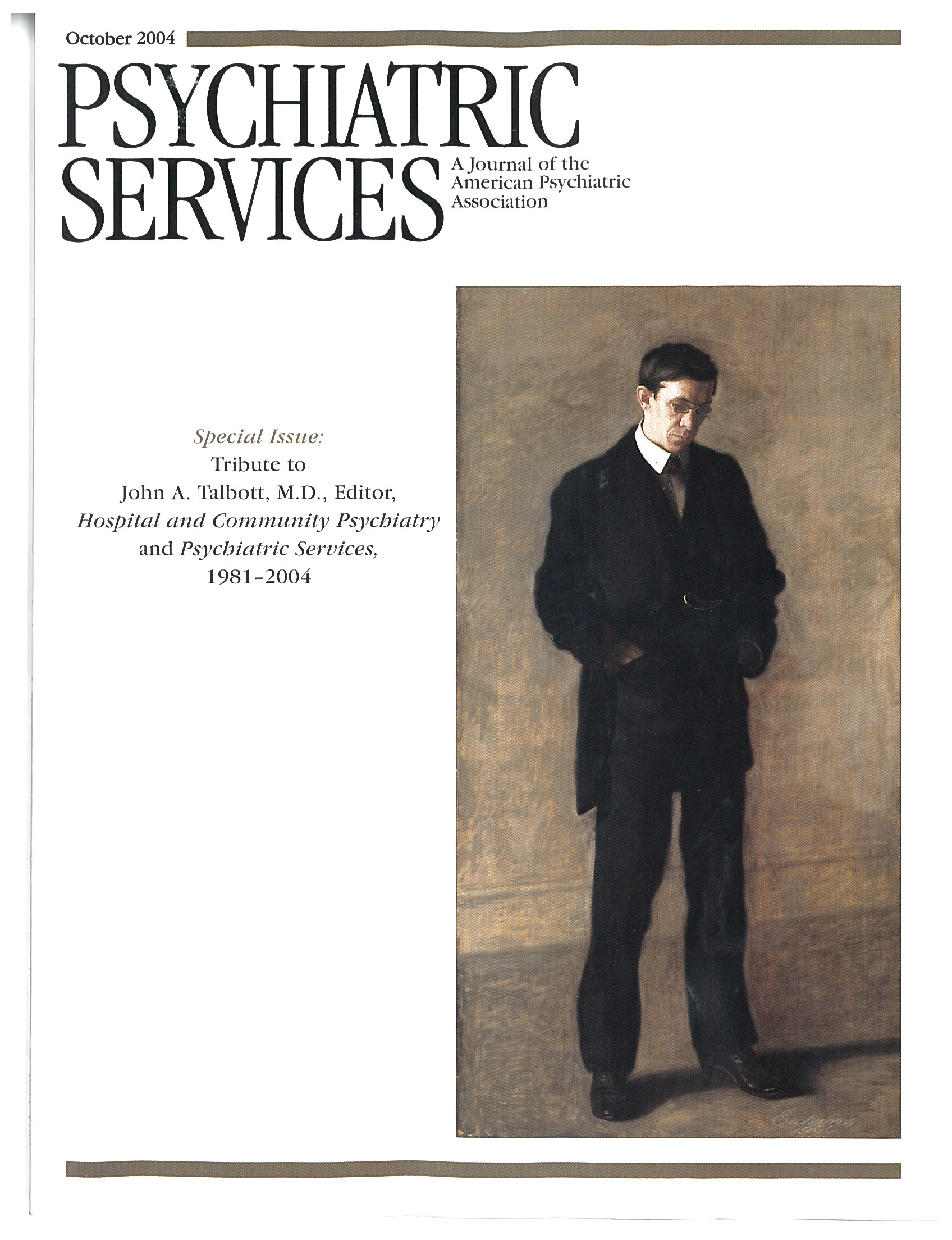To the Editor: For most European psychiatrists, John Talbott represents "the ambassador" of American psychiatry. This role was very clear to me when John and I were first introduced at a well-attended conference in Venice in 1991. Here is an American, I thought, who really wishes to know our systems and who speaks our languages and appreciates our values. It is difficult to forget how warmly he was welcomed and praised by a most distinguished pan-European audience.
As our friendship developed—and it grew to include John's wonderful wife Sue—I have had the opportunity to witness, with an increasing sense of participation and pride, how the translated editions of the Textbook of Psychiatry that John co-edited began to occupy the most easy-to-reach shelves in the bookcases of European psychiatrists and how Psychiatric Services in its Italian and Spanish editions has become for my generation the journal to read in order to learn about "American psychiatry at work." John's Textbook of Administrative Psychiatry has made this discipline less tough to those of us who are involved in the management of psychiatric services and has helped us gain the correct perspective on American managed care. The Italian Society for Psychiatry has acknowledged John's ambassadorial role by inviting him to its annual meetings and to other special events.
On the personal side, I can only say that his words and warm feelings were invaluable to me in several challenging personal and professional situations. I have always wondered how he can sustain such meaningful and close relationships with so many people around the world, and I have long admired his generosity and inborn ability to understand and support younger psychiatrists of very different and sometimes distant cultures.
How to continue John's work of cross-cultural communication and creation of opportunities will be a challenge for those who will take his place. John's retirement as editor of Psychiatric Services will present an opportunity for me, for the Italian Society of Psychiatrists, and for all European psychiatrists to more frequently enjoy John's presence and to thank him in person for his contributions as a unique American psychiatrist who understands—and really loves—Europe.
Dr. Fioritti is director of the mental health and substance abuse program at Azienda USL Rimini (an NHS organization) in Rimini, Italy.



